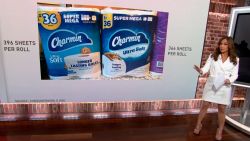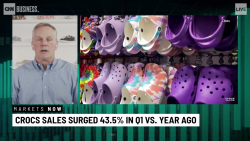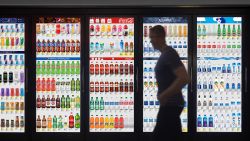The pandemic sparked a fast and furious love affair with Peloton. Now comes the breakup.
The first sign that the Peloton pandemic bubble burst came last month, when the company revealed sales of its Peloton stationary bikes and treadmills fell 17% in its most recent quarter. Those two machines are the company’s bread and butter, making up 60% of its business.
On Friday, Peloton shares dropped 5% to hit a new 52-week low after Credit Suisse slashed its price target on the stock by more than half.
For many, turning to at-home fitness became a necessity, not a choice, as gyms shut down in 2020 to prevent the spread of Covid-19. That led to a boom in purchases of its pricey bikes, which retail for between $1,500 and $2,300.
But as gyms and other fitness providers began reopening their doors this year, people fed up with the inordinate amount of time they’ve spent at home, rushed back to their pre-Covid routines. “It is clear that we underestimated the reopening impact on our company and the overall industry,” Peloton’s CFO Jill Woodworth, said during a recent earnings call with analysts.

Now, fewer people are buying a first Peloton machine, and those who already have them are trying to sell theirs.
The resale marketplace OfferUp said the number of people seeking to sell their Peloton machines has jumped since April. It’s seen a 77% increase in Peloton sellers versus a 25% increase in people looking to buy a Peloton fitness machine in that same period on OfferUp.
Mercari, another resale marketplace, said it’s seen a 1,336% surge year-over-year surge from January to December in sale listings of Peloton-branded items, including the exercise machines and related gear such as its branded cycling shoes.
And if these signs aren’t worrying enough for the company, on Thursday, Hollywood delivered Peloton some unhappy publicity when a shocking plot twist in the premiere of the “Sex and the City” revival incorporated a Peloton bike in the death of a major character.
(HBO Max, which airs “Sex and the City,” is a unit of WarnerMedia, as is CNN.)
Matt Powell, senior sports industry adviser with market research company NPD Group, said several factors could be contributing to Peloton’s fading demand.
“Much of home fitness is a ‘one and done’ purchase. If you bought a treadmill in 2020, you don’t need another in 2021,” said Powell. Also, the ongoing supply chain problems have dented sales. The slow return to in-gym fitness likely contributed as well, he said, although it’s not back to pre-pandemic levels.
And then there’s one other perennial and non-Covid reality check tied to at-home exercise machine purchases.
“Traditionally there’s always a significant falloff in usage after six months of acquiring an exercise machine,” said Powell. “They notoriously get abandoned and become a kind of expensive clothing rack.”
























